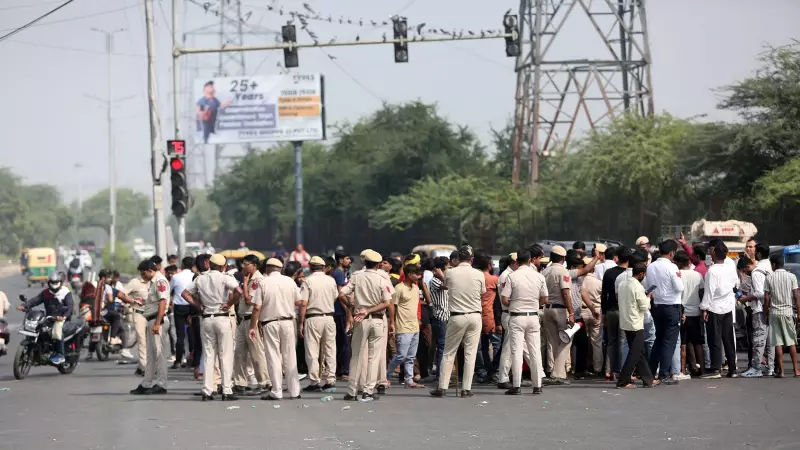
Angry scenes unfolded in Delhi as devotees preparing for Chhath Puja found themselves without water at designated ghats, leading to spontaneous protests and confrontations with authorities. The sacred festival, celebrated with great devotion by millions, faced unexpected disruption due to what protesters called "complete administrative failure."
Festival Preparations Turn Sour
As devotees arrived at the Kalindi Kunj ghat early morning to perform their rituals, they discovered there was no water supply. The situation quickly escalated when hundreds of worshippers, mostly women, blocked the main road in protest. Chhath Puja, one of the most significant festivals for people from Bihar and eastern Uttar Pradesh living in Delhi, requires devotees to stand in water bodies for hours during prayers.
Police Intervention and Public Outrage
The protest turned intense as police arrived at the scene. Visuals from the location showed heated exchanges between protesters and law enforcement officials. "We have been requesting proper arrangements for days," said one protester. "How can they expect us to perform our rituals without water? This shows complete disrespect for our traditions."
Administrative Promises Fall Short
Despite assurances from the Delhi government and municipal authorities about comprehensive arrangements for Chhath Puja, the reality on ground told a different story. The water shortage affected multiple ghats across the city, leaving devotees frustrated and angry. Many had traveled long distances to reach these specially designated areas, only to find them unusable.
Broader Implications for Civic Management
This incident highlights the ongoing challenges in urban festival management in India's capital. With Delhi's significant migrant population from Bihar and eastern UP, Chhath Puja has grown into one of the city's major religious events. The water crisis at the ghats raises questions about the preparedness of civic agencies to handle large-scale religious gatherings.
As the protest continued through the morning, authorities scrambled to address the situation. However, for many devotees, the damage was already done – their sacred rituals compromised by what they perceived as administrative neglect and poor planning.





